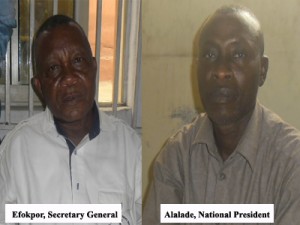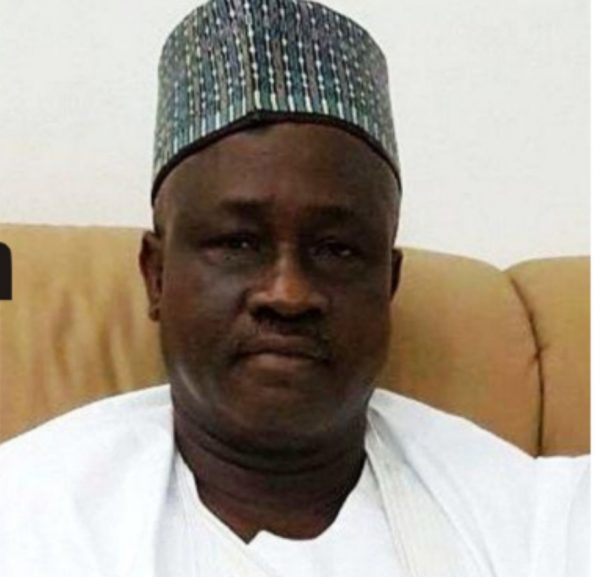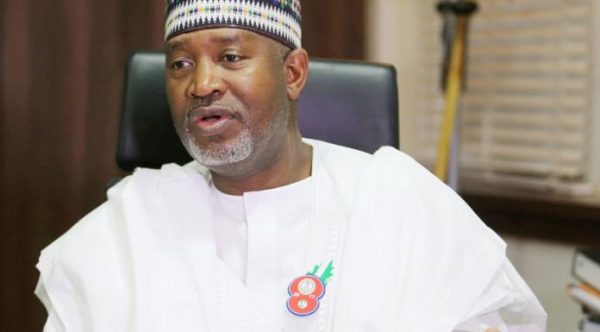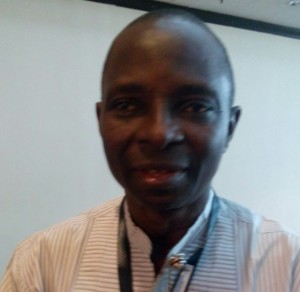Merchant Navy: New Executives, New Agenda
 Engr. Matthew Alalade has been reelected as the National President of the Nigerian Merchant Navy Officers and Water Transport Senior Staff Association. In this interview with MMS Plus, he reveals his goals for the association and well as the teething problems facing the association. Kenneth Jukpor writes.
Engr. Matthew Alalade has been reelected as the National President of the Nigerian Merchant Navy Officers and Water Transport Senior Staff Association. In this interview with MMS Plus, he reveals his goals for the association and well as the teething problems facing the association. Kenneth Jukpor writes.
Excerpts…
The Nigerian Merchant Navy Officers and Water Transport Senior Staff Association recently organized its national elections. How was the election?
The election was done in an orderly manner and it was peaceful. We recorded a huge success and that was the most peaceful election ever contested in the history of the Nigerian Merchant Navy Officers and Water Transport Senior Staff Association. I emerged president without any constraints and the other candidate also had hitch free elections. I fully realize that it is God’s divine intervention that brought me and my executives on board especially as it is my second tenure. Hence, I pledge my loyalty to the course of labour to improve the welfare of our members.
Congratulations on your emergence as President. Now that you have gotten a second tenure, what are your goals for the association in the next three years?
I believe the Merchant Navy should be progressive and I want us to increase our membership strength. We have over 4,000 members but more than 2,000 are working outside the shores of Nigeria and as a result it feels like they aren’t members.
I want to take a further step in the Maritime Labour Convention Act. I want the MLC Act of 2006 to be domesticated and we want the Merchant Navy to be fully involved in it. The ship owners, seafarers and the government must be involved. Since the inception of MLC, we haven’t recorded good success because most of the ship owners did not key into it. The ship owners have always emphasized that “no contracts, no jobs”. They need to get the jobs first and we are optimistic that the new government will initiate policies that will bring immense benefits to ship owners. Subsequently, the ship owners will employ our members to operate on their vessels.
Your main opposition at the polls, Reginald Oyenobi lamented that there are several challenges facing the Merchant Navy. Do you share his views and how can these problems be remedied?
I don’t see any concrete issue that needs to be addressed. The issue is that when one is outside leadership position, it is easy to criticize and pick faults but when you are at the helm you realize that it is a different ball game altogether. Before I was given a leadership role in the Merchant Navy, I always moved against the leaders. I was always among those agitating but since I became the president I have realized that it a different ball game altogether. I don’t expect everyone in the Merchant Navy to understand and be supportive all the time because as leaders we thrive on the criticism from our members.
It took the advice of the experienced Merchant Navy officers to finally get Oyenobi to step down because they felt he couldn’t match me in terms of experience. If one aims to be a leader, he has to be very patient and careful. It is like someone driving a bus the passengers will say why not turn here or take this route, but it is the driver that knows the constraints such as the potholes on the road.
The major problem that the union has faced recently is the harassment by the Police over identity cards but that has been resolved and today we no longer have such problems.
Recently midstream activities especially ship to ship transfer of petrol has increased. This coupled with sea pirates have become very worrisome. How do you analyze the anomaly and what are the possible solutions?
With the new dispensation (I mean the new government) there is hope that these illegal activities will be curbed. The government has said that they are up to the task and I believe them. Let us give them some time to see what they are going to do about the safety of our waters. Personally, I am convinced that the trend will change for good very soon.
Who is classified as a Merchant Navy officer?
A Merchant Navy is someone who has his living onboard a vessel, someone who sails with a vessel. He doesn’t have to carry arms onboard like the regular Navy officers, but he works onboard a vessel. The vessel could be a wet or dry cargo vessel or it could be a vessel designed to convey passengers from one point to another.
One last word…
We want the government to acquire vessels for Nigerians through the provision of national carriers. This would go a long way to strengthen our association, create jobs as well as enhance the Nigerian shipping sector. It will also boost our chances of becoming the maritime hub of the West and Central Africa. The government can provide a Public-Private Partnership (PPP) for the acquisition and management of these vessels. I hope these are the ideas running through the mind of Minister of Transportation, Rotimi Amaechi and all those in authority to facilitate things in the maritime industry.
MMS Plus also spoke to the new Secretary General of the Nigerian Merchant Navy Officers and Water Transport Senior Staff Association…
As Secretary General of the Merchant Navy, what are your targets for the association?
As a labour union, the paramount thing is the welfare of our members. There is this Joint National Industrial Council which NIMASA is supposed to convene. It expired since 2012 and this year we must ensure that we meet to negotiate the condition of service for our members.
What are the major challenges facing the Merchant Navy?
The issue of Cabotage was supposed to be a blessing for Nigerian seafarers, but instead it has become a curse. Foreign owners of vessels still come up with their seafarers. And this has put the Nigerian seafarers at a great disadvantage. The implementation of the Cabotage through NIMASA appears to be weak because NIMASA issues certificates of competency to seafarers but foreign vessel owners reject these certificates as they claim that the capacity of their vessels is far higher than what NIMASA issues.
Cabotage came to provide indigenous ownership of vessels, indigenous manning of vessels and indigenous building of boats. However, the stronghold of the foreign owners of vessels has become a major challenge. This is because they had all the facilities even before the Cabotage was introduced and we don’t have the facilities to challenge them. Although there is a Local Content Act to ensure indigenes can compete for contracts with these foreign investors, when the Nigerians win the contracts, the ability to carry it out becomes a challenge and most times they have to fall back to the foreign companies who end up collecting the lion share of the profit while the indigenous contractor is left with peanuts.








